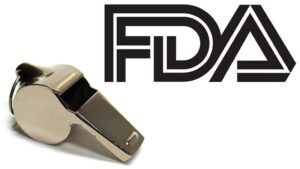Delays in the premarket approval of medical devices has been a thorn in the health care society’s side for entirely too long. Now the process has been streamlined by the rule that makes it necessary to file an electronic application instead of paper.
The FDA, seeing the need to make the pre-market approval application process for medical devices more efficient, has made a ruling that the application process will now be done entirely by electronic means. No more paper applications in multiple copies. Now, anyone with access can go to the appropriate site, download the application information, burn it to the cloud, or some other external drive, and take it with them.
FDA improves efficiency
This new rule will improve the overall speed of the approval process, getting these medical devices on the market to the people who need them most. Traditionally, the medical device license application can be tedious and seem like a game of “hurry up and wait.” Electronic filing gets the application to all the appropriate parties right away, and in turn, gets the application review going much faster than with a hardcopy paper process.
The application format has also been streamlined to make the important documents more understandable, removing the need for staff that is only there to explain the parts that, while cut and dry legal speak, can be tricky. It makes it all so much easier, but still contains the necessary meat that is critical for premarket approval. All the fluff no one needs to read because it does not pertain to the person applying for the license. Some of the form that was just for the licensing body and has been taken out.
Why the change?
All these measures were a response to a public outcry for a more efficient, less bureaucratic application that gets necessary medical products to the market faster, and into the hands of doctors. It eliminates human error, mostly due to paper applications being lost or misfiled, and it can get the ball rolling when it comes to patents, allowing the inventors of these medical devices to make money on their labors more quickly.
How else will it help?
Another great benefit, in the event of a lockdown, as it is with the Covid-19 quarantine, where everything is done online in respect of social distancing, the forms can get to all the appropriate parties without being forced to wait until the quarantine is lifted. With the medical staff at the front lines, it is crucial they get all the life-saving equipment they need, and if something new emerges, the sooner they get it, the better.
Think of it like you would anything during a world-wide quarantine. The only way to communicate is electronically, and most things are ordered online. People are having staff meetings over social cam sites, and even some music and sports venues are being broadcasted via sites like YouTube and Zoom. And online games have gone up in membership and player numbers by an exponential amount. It is all in an attempt to keep from going crazy with nothing to do. New online slots pop up in online casinos almost every day with creative and exciting free slot machines.

Another benefit, this new protocol will make a dent in the FDA’s carbon footprint.
The need to file multiple forms and multiple copies, or even volumes, of certain forms, used a lot of paper.
Some, like PMAs, required 6 copies, and if they were especially detailed, they would need a binder, labeled with volume designation. Going electronic cuts down on spending by the FDA, as well as all the paper wasted on these filings.
And for folks that are concerned about their information being used for other purposes beyond the needs of the applying process, they are no longer required to list any information that denotes trade secrets, confidential information, or financial details on the document. These were never necessary but were still often part of the form. It has been omitted from the electronic form, giving greater freedom to people filing PMAs, to be honest without fear of the government wanting a piece of the incoming capital. If there is a financial gain from patents or sales, taxes will ensue, as they often do, but this addendum to the form means that the device patent holder must report earnings and sales themselves.
Where else does this rule apply?
This new rule will be the norm for other applications with the FDA. The application for program approval and the medical exemption application form has already been added to the FDA website. It is so unbelievably efficient, a lot of medical professionals, and some of the more adamant public, are wondering why, in this age of many government forms going to electronic processes, why it took the FDA so long to get on board. Perhaps maybe they just had to wait their turn.
Conclusion: These are the days where even the regulator agencies feel it is time to get things done more quickly and with less collateral mess. No longer will a lapse in judgment or a moment of distraction delay something that can save lives due to human error. And no longer will the same form be passed from room to room, until it eventually gets accepted or rejected, sometimes taking years to complete its journey. It is nice to know that new innovations in medical devices, and possibly other items regulated by the FDA, will not be delayed by red-tape, and people can get what they need with this new quick and efficient application process.
Has this article restored your faith in the FDA and their ability to do their job in the manner you expect?